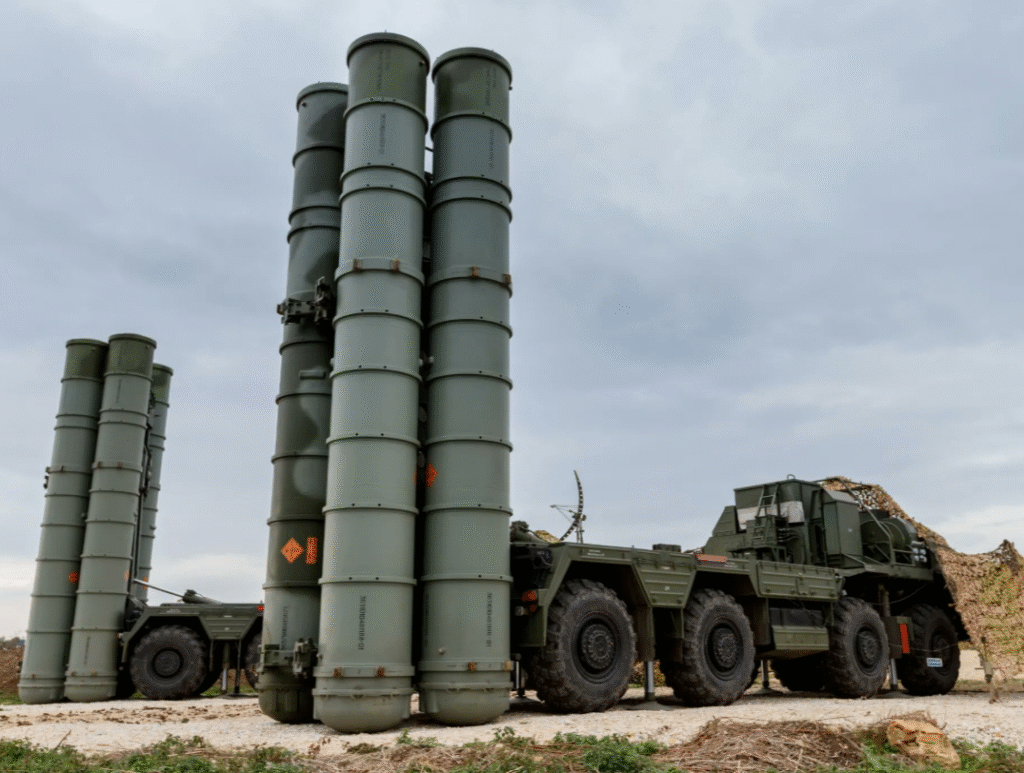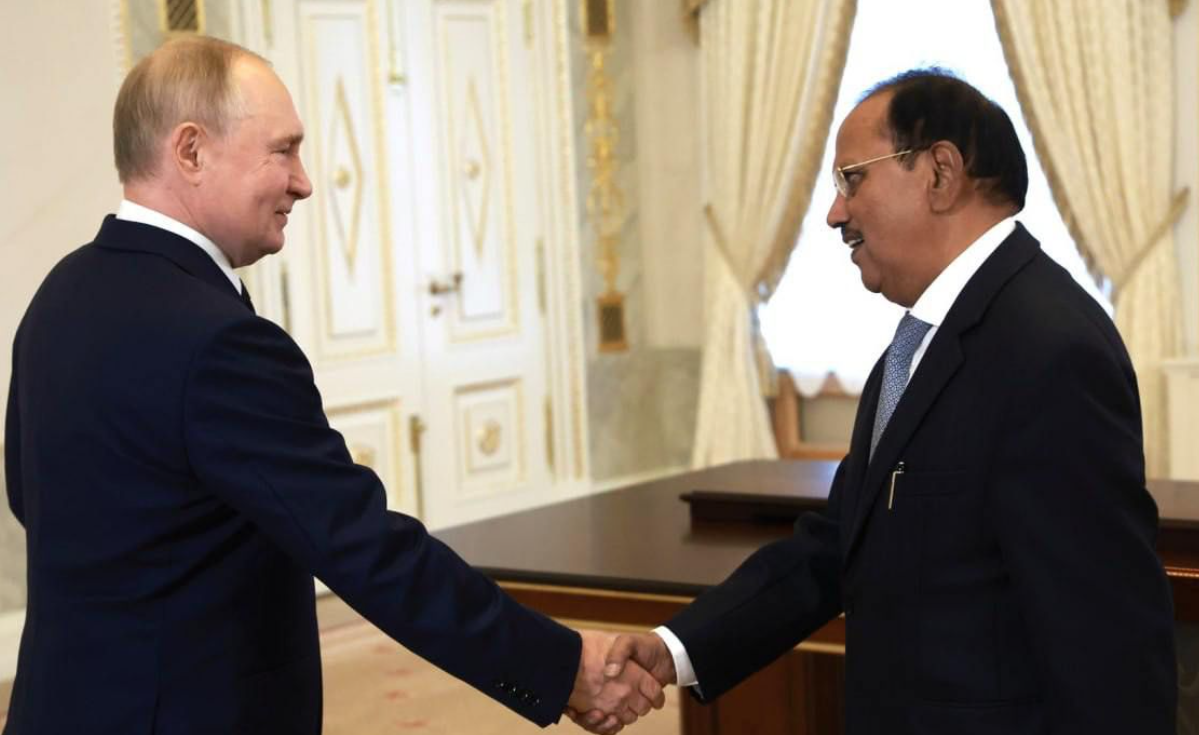Ajit Doval to Visit Russia:In a significant development aimed at expediting the delivery of the remaining two S-400 air defense systems from Russia, India’s National Security Adviser (NSA), Ajit Doval, is scheduled to visit Moscow next week. The visit underscores India’s focus on strengthening its air defense capabilities amid escalating regional security challenges.
Ajit Doval to Visit Russia:High-Level Security Summit in Moscow
India’s National Security Adviser (NSA), Ajit Doval, is scheduled to visit Moscow next week to participate in the 13th International Meeting of High-Level Officials on Security Matters. The three-day summit will be chaired by Russian Security Council Secretary Sergei Shoigu. On the sidelines, Doval is also expected to hold bilateral talks with Shoigu.
National Security Advisor Ajit Doval will visit Moscow from 27–29 May to attend the 13th International Meeting of National Security Advisors. The event, led by Russia’s Security Council Secretary Sergei Shoigu, will include talks on regional safety and ways to boost India-Russia ties.
Doval’s visit is important as Prime Minister Modi and Defence Minister Rajnath Singh cancelled their Russia visits after the Pahalgam terror attack. India hopes to gain strong support from Russia against terrorism coming from Pakistan. Talks will also cover key defence partnerships like the BrahMos missile and S-400 system.
Focus on Accelerating S-400 Deliveries
A key agenda of Doval’s visit is to fast-track the delivery of the remaining two S-400 Triumph air defense systems from Russia. This move comes as India aims to strengthen its air defense capabilities in response to increasing regional threats. Ajit Doval’s visit to Russia is part of a long-standing S-400 contract signed years ago. Deliveries were scheduled through 2026
During the recent escalation (Operation Sindoor), India’s S-400 system, along with other indigenous and imported air defence assets, reportedly played a key role in intercepting a large number of Pakistani drones and missiles—Indian sources and multiple news reports confirm that over 300 Pakistani drones were shot down, and the S-400 was credited with intercepting at least one nuclear-capable Shaheen missile fired by Pakistan.
The Indian Army has officially confirmed the interception of the Shaheen missile by the S-400, and there is video evidence released by the Army corroborating this event.
Potential for Additional S-400 Orders
There are reports suggesting that India may place fresh orders for additional S-400 units. If confirmed, this would further deepen defense cooperation between India and Russia and enhance India’s ability to deter aerial threats from neighboring adversaries.
In addition to new purchases, the current offer from Russia reportedly includes a proposal to upgrade India’s existing S-400 “Sudarshan Chakra” systems. The plan is to expand each unit to a maximum of 8 batteries, with up to 72 launchers per unit. If fully implemented, this configuration would enable a full-system salvo launch of up to 288 40N6 missiles, significantly boosting India’s air defense strike capability. The 40N6 is a long-range missile designed to destroy aerial threats at ranges of up to 400 km, making this upgrade strategically significant.
Deepening Defense Ties Amid Terror Threats
Doval’s Moscow visit also comes as part of India’s broader strategy to deepen defense and political ties with Russia, particularly in the context of countering terror infrastructure based in Pakistan. This cooperation is increasingly important as regional security tensions continue to rise.Also further signals Moscow’s intentions to take full advantage of India being the fastest growing economy in BRICS+ and increasingly diversify its Asian partners from China. Both India and Russia have already seen a 25x increase in trade to over $50 B/year since the start of the special military operation in Ukraine with aggressive plans to reach over $100 B/year in the next 5 years. De-dollarization efforts are also accelerating with trade (in all major industries from defense, energy, critical pharmaceuticals to agriculture) being conducted local currencies per the Rupee-Ruble friendship agreement.
Post-Operation Sindhur Strategic Context
The move to enhance missile defenses is also driven by the aftermath of Operation Sindoor, which has intensified hostilities between India and Pakistan. Advanced systems like the S-400 provide a robust shield against aerial incursions and are central to India’s deterrence strategy. even some reports claims that India and Russia to Jointly Develop Next-Generation BrahMos Missiles After Operation Sindoor Success
Capabilities of the S-400 Triumph
Referred to in India as Sudarshan Chakra, the S-400 Triumph is one of the most advanced surface-to-air missile (SAM) systems in the world. It can engage multiple aerial targets at ranges of up to 400 km and detect threats as far as 600 km away. Its multi-layered targeting and response features make it a key asset in India’s missile defense architecture
The S-400 is one of the world’s most advanced air defense systems, capable of tracking and destroying aircraft, drones, and ballistic missiles up to 400 km away
Background of the India-Russia S-400 Deal
India had signed a $5.43 billion deal with Russia in 2018 for the acquisition of five S-400 units. The first system was deployed in Punjab in 2021, strengthening India’s defense against both Pakistani and Chinese threats. The remaining systems are currently awaiting delivery.
USA had threatened to sanction us under the CAATSA Act when India tried to buy it from Russia in 2018. However, India went ahead and purchased them regardless and managed to avoid the sanctions as well.

With geopolitical tensions rising and regional threats evolving, Ajit Doval’s visit to Russia is expected to yield important outcomes. The acceleration of deliveries, possible procurement of additional units, and upgrades to the current missile systems mark a critical step in enhancing India’s national security. These developments underline New Delhi’s commitment to building a technologically advanced, layered missile defense network capable of deterring any form of aerial aggression

